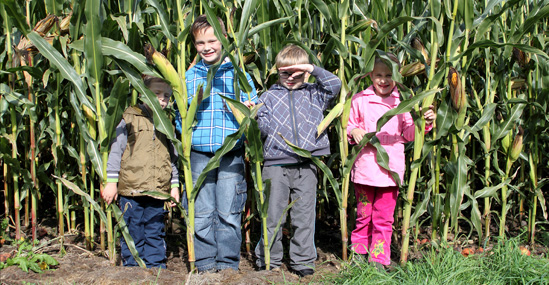There is a lot at stake in Ukraine and Georgia. Both countries are transitioning through extensive reform processes aimed at strengthening democracy, promoting human rights and creating sustainable economic growth. There is political will, but great hindrances for the reform process. In its current phase, the Danish Neighbourhood Programme focuses on the implementation of reforms to ensure that progress is felt by the populations in the two countries.
Important progress has been made since both countries achieved independence in the beginning of the 1990's with regards to the transition towards democracy and respect for human rights as well as an open economy and a responsible and accountable public sector. However, it is also clear that the transition will be a long and difficult process. Both countries for example experience great challenges in centralised public institutions and authorities, which limit the access to and influence of citizens living outside of the larger urban centres. The energy systems are inefficient and the pollution levels are high. In both countries the media is under pressure and civil society continuously has to work on finding and fulfilling its role in the continued societal development. Large-scale corruption has been one of the main challenges in the Neighbourhood region for many years. However, Georgia has come a long way in fighting corruption while Ukraine still faces major challenges.
In 2015 the total budget frame for the Danish development cooperation was re-focused and prioritised, including allocations to the Neighbourhood region. For this reason, the assistance will be phased out in Albania, Armenia, Belarus, Bosnia-Hercegovina, Kosovo and Moldova. These current projects will be completed in accordance with existing commitments and budget frames, hence no new engagements will be entered.
The Danish Neighbourhood Programme
Denmark's bilateral development effort in Ukraine and Georgia is provided through the Danish Neighbourhood Programme, which is entering its fourth phase in 2017. This phase has a duration of five years, until 2021, with an overall budget frame of DKK 860 million for the five year period. The allocation of funds between the countries is estimated to be 70% to Ukraine and 30% to Georgia. The preparations for the fifth phase from 2022-2026 has begun.
The major goal of the Danish Neighbourhood Programme is to contribute to a peaceful and stable Europe with freedom and progress through contributing to the development of democratic societies with responsible and accountable public authorities, an active civil society as well as free and well-functioning markets.
The Neighbourhood Programme thereby supports Denmark's foreign policy priority of promoting a peaceful and stable Europe in progress.
The cooperation during 2017-2021 has two thematic objectives:
1) Promoting human rights and democracy.
2) Strengthening sustainable and inclusive economic growth.
The objectives are administered through several multi-year programmes with support to civil society organisations, the media, equal rights, human rights, anti-corruption, decentralisation, growth, employment and energy efficiency. The themes have been chosen based on their relation to the needs and priorities within the two countries. Furthermore, the themes are aligned with Danish interests, key competencies and the UN's Sustainable Development Goals.
The Neighbourhood Programme will contribute to meeting the following SDGs in the two countries:
- SDG 5 – Gender equality
- SDG 7 – Affordable and clean energy
- SDG 8 – Decent work and economic growth
- SDG 16 – Peace, justice and strong institutions
- SDG 17 – Partnerships for the goals
Furthermore, Danish officials will be seconded to international organisations and monitoring missions in the region for both short and long-term assignments, and will be used to support Danish interests and priorities.
Alternative financing and support for democracy and civil-society
The Neighbourhood Programme has no direct application procedure. However, Danish organisations that wish to work with the promotion of democracy and human rights, are encouraged, alongside others, to apply for support through the European Endowment for Democracy.
For more information regarding the Neighbourhood Programme and Denmark’s development assistance

